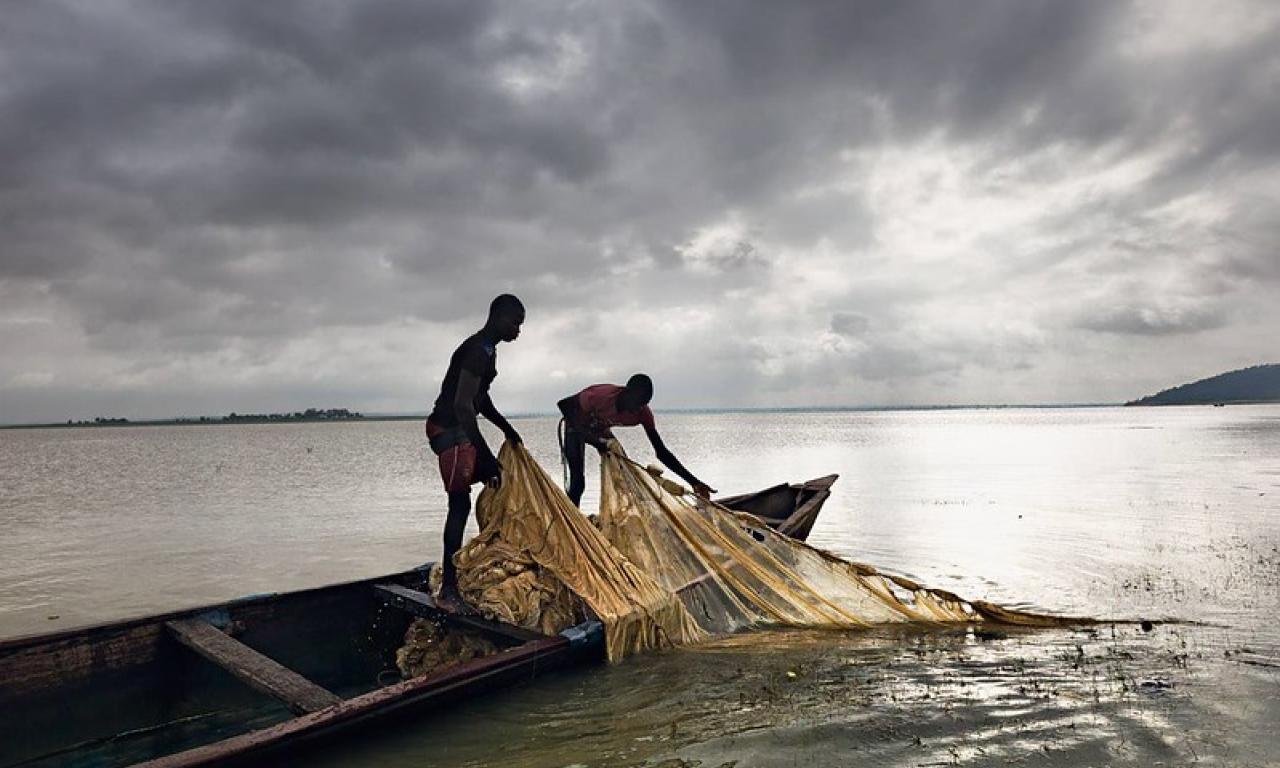
UK to provide up to £45 million to support aquatic food innovation, artisanal fishers and mariculture, benefiting vulnerable coastal communities in Africa and Asia
PANAMA, March 3, 2023 – The UK government has announced support of up to £45 million for a WorldFish-led program targeting improved livelihoods for 300,000 people in Africa and Asia’s vulnerable fisheries and aquaculture sectors, many of whom are women.
Animals, plants and microorganisms harvested and grown in water play a significant role in sustainably feeding and nourishing the world. Globally, 800 million people depend on small-scale fisheries and aquaculture for their livelihoods. But these vital aquatic food systems are hindered by the insecure livelihoods of those in related jobs, their low capacity to adapt to climate change and the loss of marine nature.
The Asia-Africa BlueTech Superhighway, supported through the UK’s Climate and Ocean Adaptation and Sustainable Transition (COAST) program under the umbrella Blue Planet Fund (BPF), will focus on enabling communities to adapt to and mitigate against climate change as well as responsibly and sustainably manage marine and coastal nature and resources resulting in improved food and nutritional security as well as employment and income opportunities.
Commenting on the announcement, Minister for Overseas Territories, Commonwealth, Energy, Climate and Environment at the Foreign, Commonwealth & Development Office (FCDO) The Rt Hon Lord Goldsmith said:
“The UK’s £500 million Blue Planet Fund is already helping to support more sustainable seafood production and marine protection. Today’s partnership with WorldFish for the Asia-Africa BlueTech Superhighway project will enable us to test and scale innovative climate-resilient and nature-positive solutions to strengthen coastal food security in Africa and Asia.”
The Asia-Africa BlueTech Superhighway will target strengthening aquatic food systems in Africa and Asia, through scaling successful existing innovations championed by WorldFish across the Global South, as well as testing new approaches and technologies. This includes schemes to foster marine and coastal ecosystem conservation, data-based systems for better management of small-scale fisheries and integrated seawater farming where fish can be reared alongside algae and shellfish.
While aiming to increase the production of aquatic foods significantly, the Asia-Africa BlueTech Superhighway will also target post-harvest fish processing technologies including solar tent dryers and smoking kilns that can reduce the significant waste in fish value chains, estimated at over £18 billion a year from discarded fish alone. The program will also build connections between governments, the private sector and others across both continents to share lessons and approaches to addressing shared challenges.
Outlining the expected outcomes of the project, WorldFish Director General and CGIAR Senior Director of Aquatic Food Systems Dr. Essam Yassin Mohammed said:
“Targeting assault on marine ecosystems compounded by climate change, this project will help to realize the great potential of sustainable, low carbon and nature-positive aquatic food systems to strengthen food security, livelihoods and economic growth in some of the world’s most vulnerable populations.”
The Asia-Africa BlueTech Superhighway aligns with the May 2022 UK Government Strategy for International Development, especially the goals of ‘providing women and girls with the resources and freedom they need to succeed’ and ‘taking forward work on climate change, nature and global health’.
###
NOTES TO EDITOR
Visit the WorldFish website for more information: https://www.worldfishcenter.org/
Photography:
https://www.flickr.com/photos/theworldfishcenter/
Press contact:
For more information or to request an interview:
Sean Lee Kuan Shern
WorldFish Science Communications Specialist
Email: K.Lee@cgiar.org
About WorldFish
WorldFish is an international, nonprofit research and innovation institution that creates, advances, and translates aquatic food systems science into scalable solutions. We vision an inclusive world of healthy, well-nourished people and a sustainable blue planet, now and in the future. Our mission is to end hunger and advance progress on the 2030 Sustainable Development Goals through science and innovation to transform food, land, and water systems with aquatic foods for healthier people and the planet.
For over 45 years, WorldFish's data, evidence, and insights have shaped practices, policies, and investments to end hunger and advance sustainable development in low- and middle-income countries. We have a global presence across 20 countries in Asia, Africa, and the Pacific, with 460 staff of 30 nationalities deployed where the most significant sustainable development challenges can be addressed through holistic aquatic food systems solutions. Embedded in local, national, and international partnerships, our work sets agendas, builds capacities, and supports decision-making for climate action, food and nutrition security, sustainable fisheries and aquaculture, blue economy, One Health, and AgriTech, integrating gender, youth, and social inclusion.
A core element of the 2030 WorldFish Research and Innovation Strategy: Aquatic Foods for Healthy People and Planet is focused on building the resilience of aquatic food systems to shocks, which is critical to COVID-19 response and recovery.
WorldFish is part of CGIAR, the world's largest agricultural research and innovation network.
For more information, please visit https://www.worldfishcenter.org.
About CGIAR
CGIAR is a global research partnership for a food-secure future. CGIAR science is dedicated to transforming food, land, and water systems in a climate crisis. Its research is carried out by 13 CGIAR Centers/Alliances in close collaboration with hundreds of partners, including national and regional research institutes, civil society organizations, academia, development organizations and the private sector.
We would like to thank all Funders who support this research through their contributions to the CGIAR Trust Fund.
For more information, please visit https://www.cgiar.org.